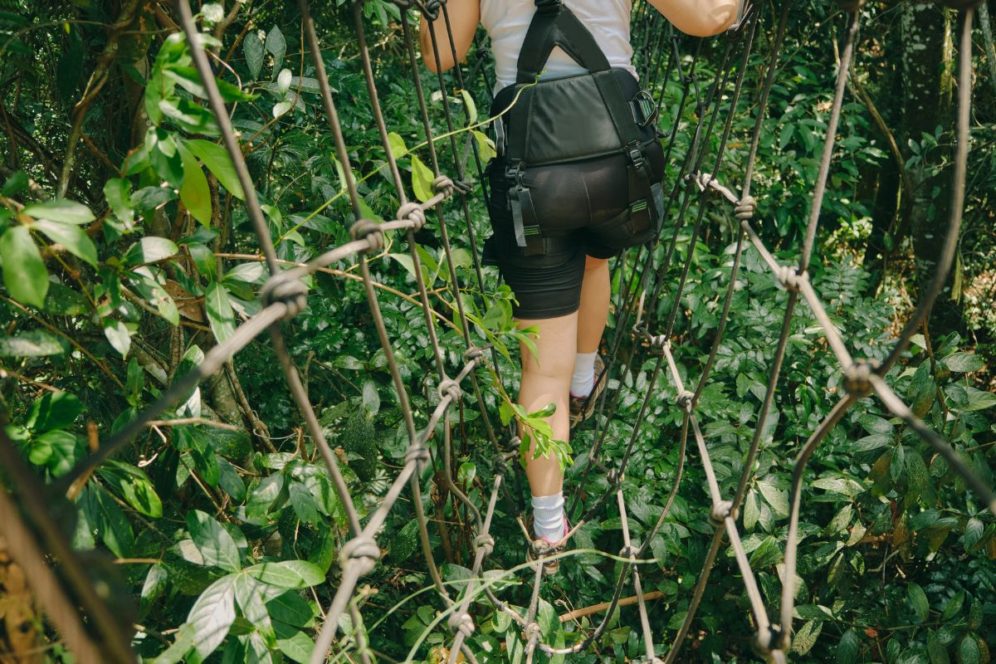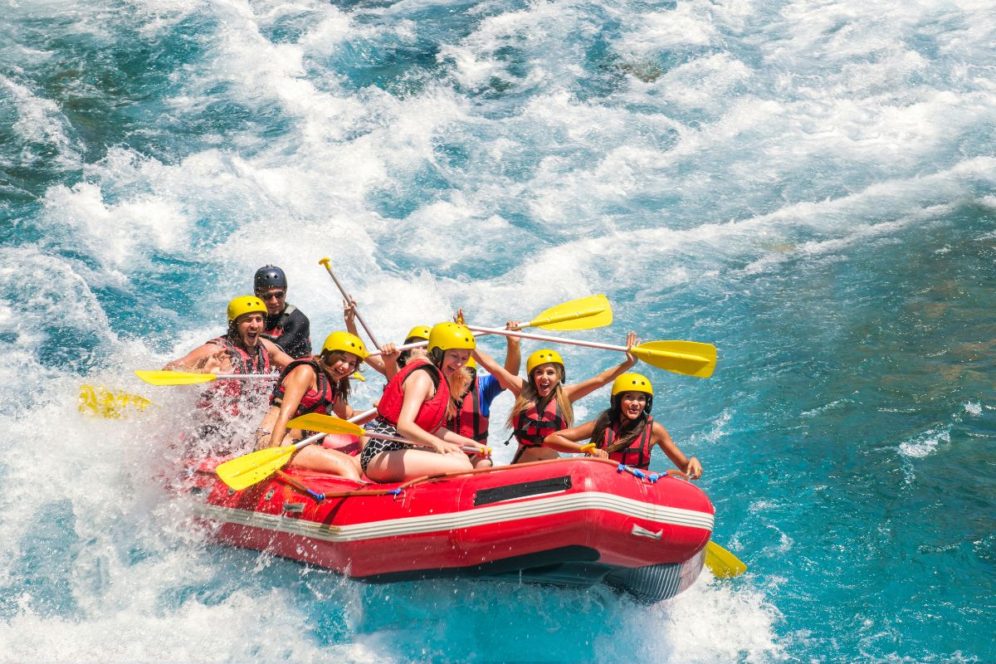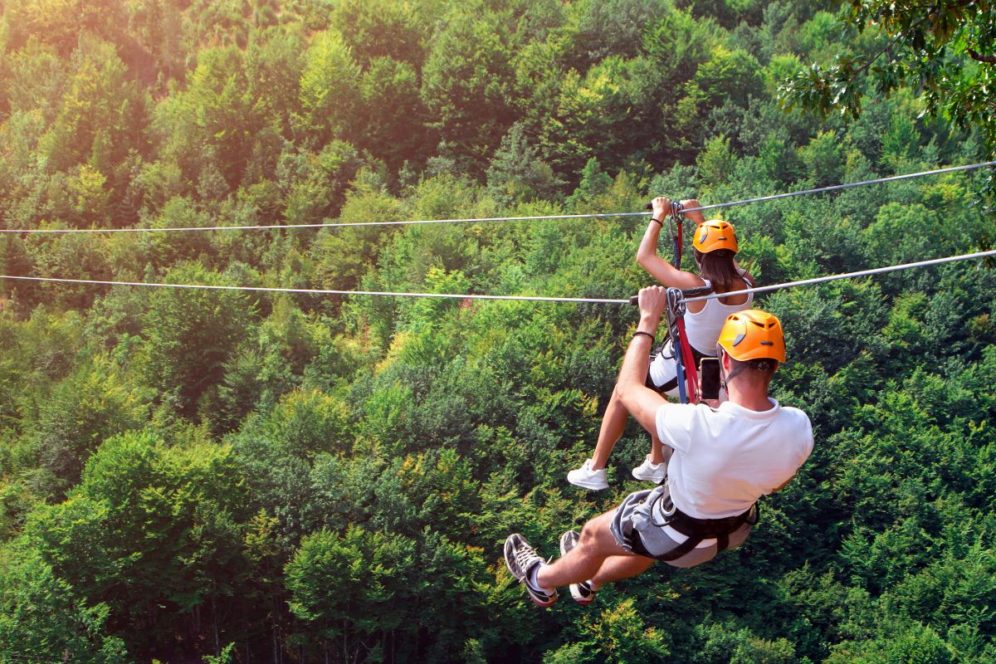The allure of adventure travel is undeniable. Adventure travel is incredibly appealing. Whether it’s climbing mountains or rafting through wild rivers, it gives you the chance to test your limits, get close to nature, and make unforgettable experiences. But being out in the wild comes with dangers. By being careful and knowing the rules, adventure travelers can have fun while staying safe and avoiding accidents.

Essential Safety Practices
Planning is key to a safe adventure. Before you go, make sure you do your homework:
- Research your destination: Learn everything you can about where you’re going. Understand the terrain, typical weather, and any dangers like animals or sudden floods.
- Get the right gear: Pack the right clothes and shoes for what you’ll be doing and the weather. Bring navigation tools like a map or GPS, and don’t forget a good first-aid kit and any special gear you’ll need.
- Be fit: Adventure travel can be tough, so make sure you’re up for it. Be honest about your fitness level and pick activities that match. Training before you go can make a big difference and help prevent getting too tired or hurt.
When you’re actually on your adventures, be sure to continue prioritizing your safety:
- Be aware of risks: Pay attention to possible dangers in the area you’re in. Watch for signs of changing weather, be careful of tricky terrain like loose rocks or steep drops, and keep an eye out for wildlife.
- Use the buddy system: It’s best to travel or do activities with a friend, especially if you’re new to it. You can help each other out, share supplies, and be there in case something goes wrong.
- Follow the rules: Stick to designated paths, climbing spots, and safety rules for water activities. Local authorities make these rules to keep everyone safe and protect the environment.
Safety Gear and Equipment
Having the right gear is crucial for a safe adventure. Here are some key things to consider:
- Helmets and Harnesses: If you’re into activities like rock climbing, make sure you have a good helmet that meets safety standards. Also, check your harness regularly to ensure it’s in good shape and fits you properly.
- Life Jackets and Flotation Devices: When you’re around water, always wear a lifejacket or flotation device that’s right for your activity and size. This is especially important for things like kayaking or rafting where the water can be unpredictable.
- Appropriate Clothing and Shoes: Dress for the weather, not just what’s expected. Layering helps you adjust to changing conditions. And make sure you have sturdy shoes with good grip to avoid slips and falls on uneven ground.

Protecting Yourself on Your Adventure
Adventure travel companies often ask participants to sign liability waivers. These are legal documents that limit the company’s responsibility if something goes wrong.
- Understanding Liability Waivers: It’s important to know what these waivers mean. Generally, they protect companies from being blamed if they make a mistake. However, if the company is deliberately careless or reckless, the waiver might not apply. Also, if you’re careless and something happens, the waiver won’t protect you.
- Travel Insurance: While waivers protect companies, travel insurance protects you. Look into getting travel insurance that covers adventure activities. This kind of insurance can help pay for medical bills if you get hurt, cover the cost of being taken to a hospital in an emergency, and even refund your trip if something unexpected happens.
In case of an accident, knowing about liability waivers and having travel insurance can be really important. If you get hurt and think the company did something wrong, understanding the limits of the waiver can help your personal injury lawyer figure out what to do next. And travel insurance can help pay for medical bills and other expenses from the accident, which can make things easier during a tough time.

Utilize Your Resources
Keep in mind, when planning your adventure trip, there are numerous valuable resources available to ensure both safety and enjoyment. Reputable travel agencies specializing in adventure travel can offer expert guidance and assistance. Additionally, national park websites and local tourism bureaus provide detailed information about specific destinations, including safety guidelines and recommended gear. Online forums and communities dedicated to adventure travel are also valuable sources of insights and recommendations from experienced adventurers.
By prioritizing safety throughout your adventure and being mindful of legal considerations, you can minimize risks and maximize the thrill. Remember, preparation, awareness, and respect for the environment are essential ingredients for a successful and unforgettable adventure.

Leave a Reply